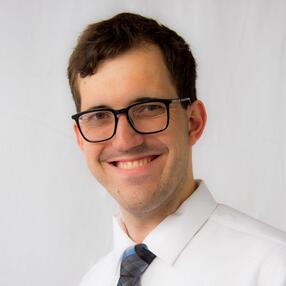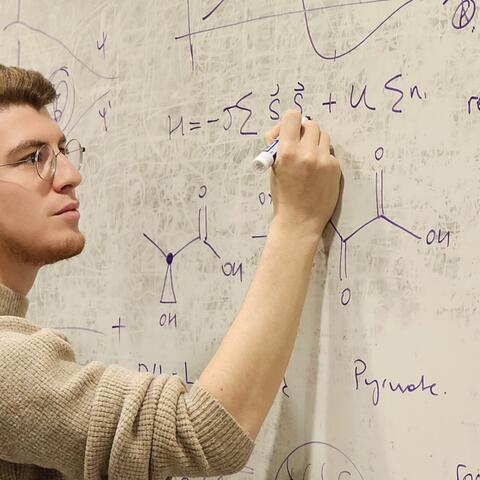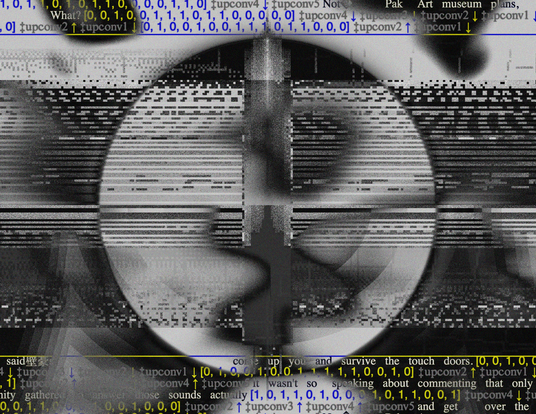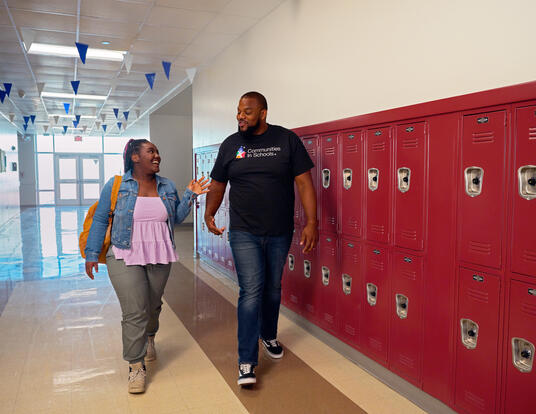When It’s Right to Be Wrong
January course explores how scientists change their minds

Research at Risk: Since World War II, universities have worked with the federal government to create an innovation ecosystem that has yielded life-changing progress. Now much of that work may be halted as funding is withdrawn. Find out more about the threats to medical, engineering, and scientific research, as well as how Harvard is fighting to preserve this work—and the University's core values.
The American scientist Herbert C. Brown is remembered for his groundbreaking research in synthetic organic chemistry, which had wide-ranging applications in academia and industry, including the production of pharmaceuticals. Brown and his colleague Georg Wittig of Germany were recognized for this work with the 1979 Nobel Prize in Chemistry.
Brown is also remembered for being wrong about one of the twentieth century’s great scientific controversies. The principles of classical chemistry dictate that the bonds of a molecule involve two atoms sharing a pair of electrons. But in the 1940s, scientists observed a molecule that seemed to show three atoms sharing one bond.
Brown didn’t buy it. He continued to try to explain the “2-norbornyl cation” molecule in classical terms, even as the data piled up against his argument over the decades. He died in 2004 still believing he was right.
For Jeremy Koob, a PhD student in molecular and cellular biology at the Harvard Kenneth C. Griffin Graduate School of Arts and Sciences (Harvard Griffin GSAS) and his colleague Alexander Mitchell, an MD/PhD student in neuroscience at the University of Connecticut, the kind of controversy in which Brown was involved tells us a lot about how science is done. It also shows how even the most brilliant scientists and scholars can hold onto their beliefs even when contradicted by evidence. In their January mini-course, “You’re Wrong! When Data Show You Need to Change Your Mind,” Koob and Mitchell explore how scientists' views shift—or fail to—and what happens next.
Amused and Curious
Chosen from many applications, funded, and promoted by the Harvard Griffin GSAS Student Council as part of its January programming, Koob and Mitchell’s course was not conceived with civil discourse in mind. “We were really interested primarily in academic debates,” Koob says. "We found that a lot of students interested in the course wanted to think about the broader public implications. We actually tried to steer away from [civil discourse] a little bit and focus on having fun with the academic science literature.”
You have a particular hypothesis about a phenomenon. But then you get some information that tells you the hypothesis was not right. How do you cope with that?
—Jeremy Koob

While the focus was science rather than science communication, Koob and Mitchell realized the course intersected with the higher aims of the civil discourse initiative. “We were interested in how professors address each other, how they reach a consensus—or don't,” Koob says.
The two PhD students were both amused by and curious about cases where scientists pursue a theory that, given the data available at the time, seems to make sense, but then months, years, or even decades later turns out to be wrong.
“This is something we encounter every day in the lab,” Koob says. “You have a particular hypothesis about a phenomenon. But then you get some information that tells you the hypothesis was not right. How do you cope with that?”
To give students a broad view, the duo chose different topics in different areas of science: biophysics, neuroscience, chemistry, and biology. They also highlighted different types of controversies in the academic literature.
“Sometimes, there's something that isn't known and people have different ideas that connect the few dots they have to make a complete shape,” Mitchell explains. "Other times there's a unique, surprising finding and people are trying to make sense of it, seeing how much of the old theory they have to throw out—or if they need to throw out the new finding, which is the way the scientific establishment often hopes it will go.”
Beyond Dogma
Scientific knowledge is dynamic. It's common for respected scientists to argue in good faith about how to interpret data, particularly when new information challenges established theory. As research piles up, sometimes an incorrect theory will require adherents to hold onto so many mutually incompatible ideas and so many exceptions for data that doesn't fit them, that it simply collapses under the weight of its own contradictions.
Such was the case with "the Central Dogma," described in Koob and Mitchell's syllabus as "the idea that information flows from DNA to RNA to protein, as outlined in a famous schematic by [the Harvard microbiologist James Watson]. But even in the early 1960s," the document continues, "some virologists believed information could flow from RNA to DNA, and the literature was alive with clashes between competing theories." Then, in 1970, the scientists David Baltimore and Howard Temin independently discovered the reverse transcriptase enzyme, showing that some viruses could synthesize DNA from RNA.
"It's not always the case you find one experiment that puts the nail in the coffin, although sometimes there's one that delivers a pretty good blow," Mitchell says. “The discovery of reverse transcriptase was very conclusive. It cleared up a lot of the controversies."
When someone gets too attached to their idea, they take criticism as a personal attack, rather than an attack on their idea. That's where things can break down.
—Jeremy Koob
When Science Gets Personal
The Central Dogma was a case where those with different hypotheses were open to new information and perspectives. When controversies drag on, though, the back and forth can get heated. “Things sometimes start to get personal,” Mitchell says. “The data take a back seat to personality clashes. People get too attached to their ideas. It can happen even with professional scientists."

An extreme example of scientific intransigence explored in Koob and Mitchell’s course was the infamous "Memory of Water" hypothesis. The French scientist Jacques Benveniste claimed water could retain the “memory” of substances once dissolved in it. Despite being published in Nature, a reputable journal, the claims were met with skepticism, and subsequent attempts to replicate the findings failed, prompting the scientific community largely to dismiss the hypothesis as pseudoscience.
“Instead of saying, ‘That's an interesting point. We tested it in this way and our data doesn't show that,’ Benveniste would say, ‘That point is totally useless. That doesn't make any sense in the context of what we're studying,’” Mitchell says. “And then he also took on a very victimized posture, saying, ‘This was a witch hunt. They were trying to prove us wrong. They sent a team of fraud detectives to try and expose a scandal.’ Benveniste was angry that Nature had sent a fact-finding mission to his lab, despite the fact he had agreed to this as a condition for publication. This delegation included the famous magician and skeptic James Randi, which made Benveniste feel like he was being investigated as a fraudster—which, in fairness, he was.”
A burgeoning neuroscientist, Mitchell suggests that when debates become personal, the part of the brain that evaluates arguments shuts down and the “scared animal” part takes over. “It’s a natural human psychological reaction,” he says. “When you get backed into a corner, you fight.”
Koob adds, "When someone gets too attached to their idea, they take criticism as a personal attack, rather than an attack on their idea. That's where things can break down."
Learning Rather than Winning
Koob and Mitchell’s course challenges the common perception of science as an objective field immune to emotion. It portrays scientists as susceptible to biases and personal attachments like humans in any other field of study. This recognition aligns with the broader goals of Harvard’s Civil Discourse Initiative, launched in 2023 by Faculty of Arts and Sciences Dean Hopi Hoekstra, which aims to enhance the community's capacity to engage in open, yet challenging conversations.
One of the nice things about these courses is providing a chance to argue. As you do that more, you get better at it, becoming less thin-skinned, which is paramount to engaging in civil discourse.
—Alexander Mitchell
While Koob and Mitchell’s course was not part of the initiative, it dovetails with its aim to foster environments where differing ideas can be expressed and debated civilly. The class highlighted the importance of remaining open-minded while critically evaluating evidence. "In science, we aim to prove hypotheses wrong, which is fundamentally different from ‘winning’ an argument," Koob explains. "There's an established culture of admitting when you're wrong, which helps move the field forward."
Koob and Mitchell hope that the principles discussed in their course extend beyond academic boundaries. "One of the nice things about these courses is providing a chance to argue," Mitchell reflects. "As you do that more, you get better at it, becoming less thin-skinned, which is paramount to engaging in civil discourse."
Get the Latest Updates
Join Our Newsletter
Subscribe to Colloquy Podcast
Simplecast





